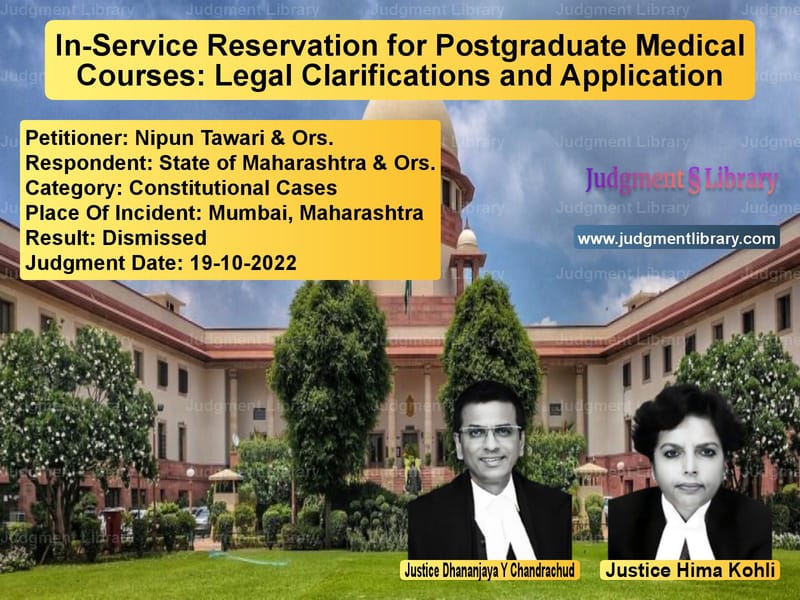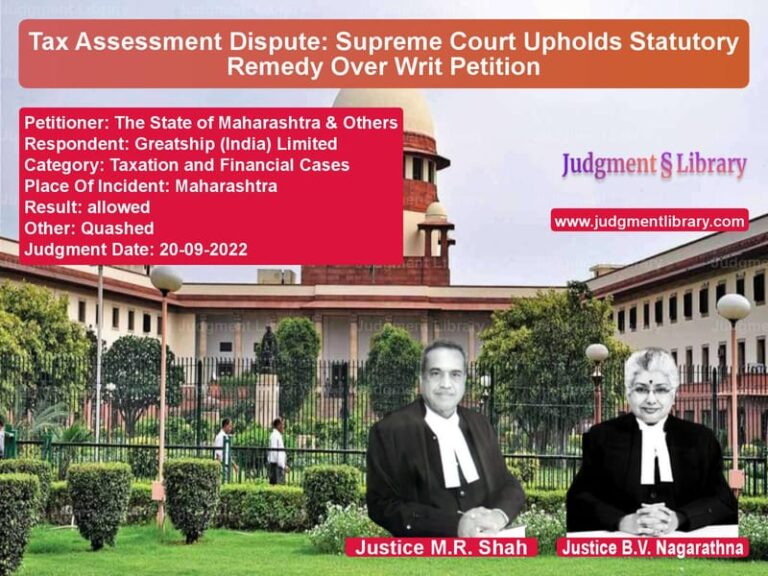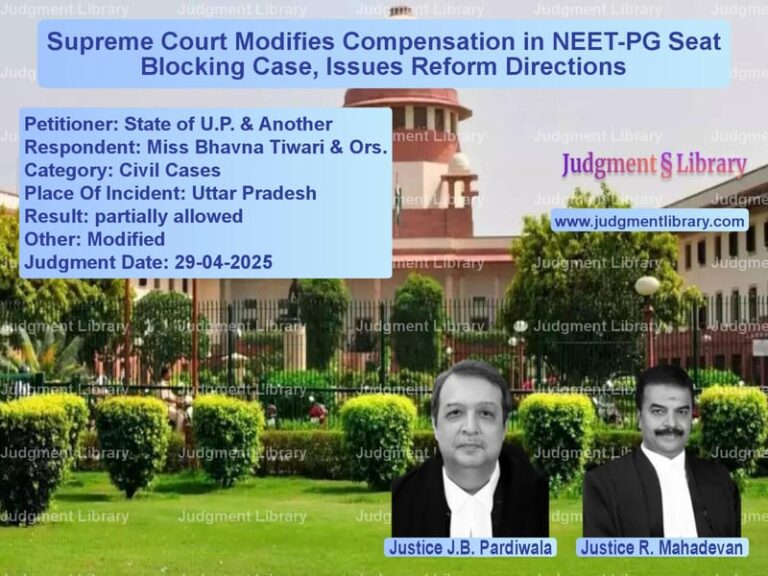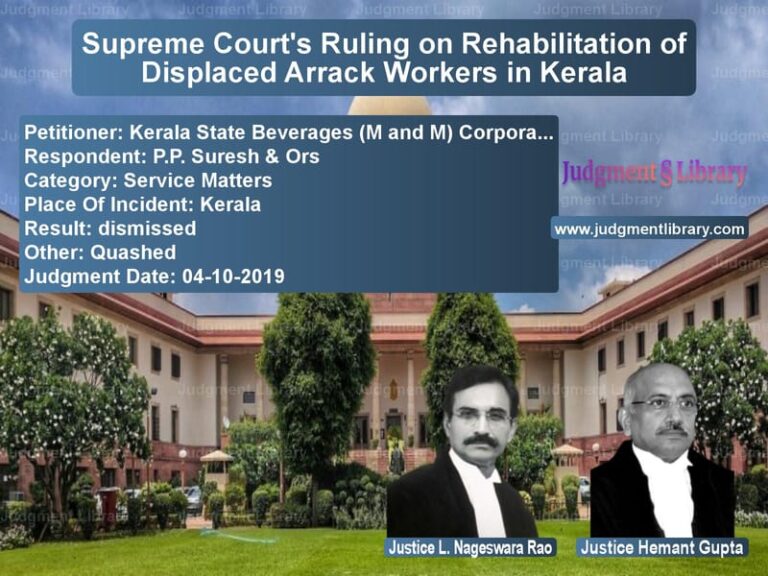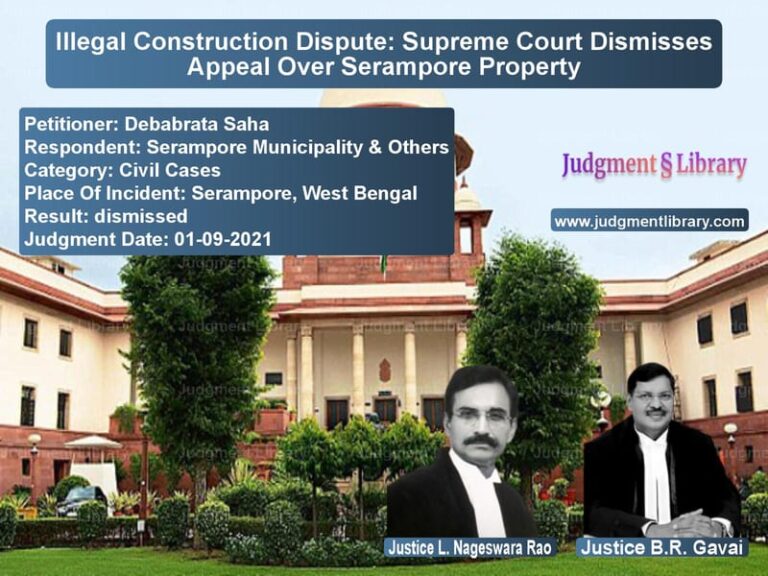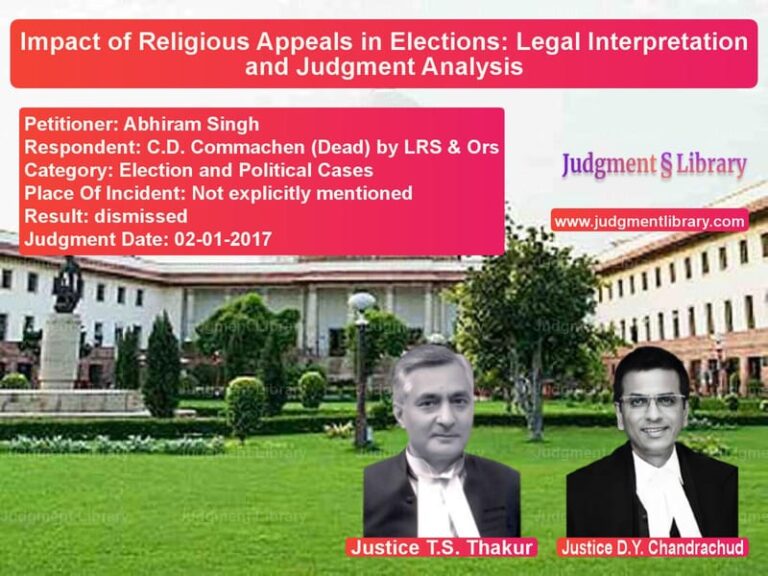In-Service Reservation for Postgraduate Medical Courses: Legal Clarifications and Application
This case arises from a challenge to the Government Resolution issued by the State of Maharashtra regarding the reservation of 20% seats for in-service candidates in postgraduate medical degree courses. The petitioners, Nipun Tawari & Ors., argued that the resolution, which provided for a 20% reservation for in-service candidates, should not apply for the current academic year, 2022-23, as it was issued after the commencement of the admission process. The case presents a complex intersection of administrative decisions, constitutional provisions, and the timing of policy changes in the middle of the academic year.
Background:
On 26th September 2022, the Maharashtra Government issued a Government Resolution providing for the reservation of 20% of the seats in the State quota for postgraduate medical degree and diploma courses to in-service candidates. This move was part of an ongoing effort to reserve seats for medical officers who had served for at least three years in remote or difficult areas. The resolution came after the schedule for postgraduate medical admissions had already been published, and the online registration process had begun on 21st September 2022. The petitioners filed a writ petition before the High Court, seeking to exclude the 20% in-service reservation for the academic year 2022-23, arguing that this policy change came too late in the process.
The appellants contended that the resolution was issued after the admission process had begun, and such midstream changes would disadvantage non-in-service candidates and be detrimental to the merit-based admissions process. They argued that once the admission process has commenced, the rules governing the admission cannot be changed. However, the respondents, including the State of Maharashtra, argued that the resolution did not alter the rules of the game as the eligibility criteria for in-service candidates had always been part of the admission process, with changes to the reservation being made from time to time.
Appellant’s Arguments:
The appellants, represented by Mr. Anand Grover, argued that the Government Resolution dated 26th September 2022 could not apply to the current academic year. They submitted that once the admission process had started, the rules could not be altered, relying on the precedent set in the case of Dr. Prerit Sharma v. Dr. Bilu B S, where the court had ruled that changes made to the admission process after its commencement were not permissible. The appellants argued that the sudden introduction of a 20% in-service reservation after the start of the process would be unfair to non-in-service candidates, potentially limiting their opportunities for admission.
The appellants also pointed out that, according to the brochure for NEET-PG 2022, no mention was made of the 20% in-service reservation at the time of registration. The introduction of this new reservation, they argued, was a change in the rules after the admissions process had already begun, making it arbitrary and unfair to candidates who had already registered under the assumption that the original rules would apply.
Respondent’s Arguments:
The respondents, represented by Mr. Siddharth Dharmadhikari, defended the Government Resolution, asserting that the 20% reservation for in-service candidates had been in effect prior to 2017 and had been reintroduced after the decision of the Constitution Bench in Tamil Nadu Medical Officers Association v. Union of India. The respondents contended that the resolution did not alter the basic rules of the game but simply reinstated a previous practice, which was aligned with the constitutional obligations of the State to provide healthcare services in underserved areas. The respondents argued that the clause in the information brochure specifying that in-service reservation would be subject to changes from time to time made it clear that such a modification could occur.
The respondents also emphasized that the eligibility criteria and reservation policy were part of the State’s ongoing legislative competence and that no challenge had been made to the validity of the Government Resolution itself. They argued that the decision to apply the 20% reservation was in line with past practices and was not a change introduced midstream. The respondents further pointed out that the decision to reduce the quantum of reservation from 30% to 20% was a policy decision made by the State Government.
Court’s Analysis:
The Supreme Court carefully analyzed the arguments presented by both parties, particularly focusing on whether the Government Resolution could be applied to the current academic year. The Court referred to the decision in Dr. Prerit Sharma and noted that in that case, a change in the rules of the admission process after its commencement had been deemed impermissible. However, in the present case, the Court observed that the Government Resolution did not drastically alter the admissions process, but rather clarified and formalized the reservation policy for in-service candidates. The Court concluded that the Government Resolution was not a midstream change to the rules but was consistent with the general framework that had been set out in the NEET-PG brochure.
The Court also examined the broader legal and constitutional implications of the reservation for in-service candidates. The Court highlighted that the Constitution Bench in Tamil Nadu Medical Officers Association v. Union of India had held that States had the authority to provide reservations for in-service candidates seeking admission to postgraduate medical courses. The Court found that the Maharashtra Government’s decision to introduce a 20% reservation for in-service candidates was consistent with these constitutional principles and the legal framework established by the Medical Council of India regulations.
The Court also found that the 20% reservation was not excessively high given the needs of the State for qualified medical personnel, particularly in underserved areas. The Court noted that the number of in-service candidates who had qualified and sought admission was relatively low, and thus the introduction of the reservation did not disproportionately affect non-in-service candidates.
Judgment:
The Supreme Court dismissed the appeal, upholding the High Court’s decision to allow the 20% in-service reservation for the academic year 2022-23. The Court held that the Government Resolution dated 26th September 2022 was valid and did not constitute a change in the rules midstream. The Court emphasized that the State had the authority to make such reservations in line with its constitutional obligation to provide better healthcare services in remote and underserved areas. The Court further clarified that the decision to reduce the in-service reservation from 30% to 20% was a policy matter within the State’s discretion.
Conclusion:
This case reaffirms the principle that States have the constitutional authority to make reservations for in-service candidates in postgraduate medical courses. The Court’s decision highlights the balance between ensuring access to medical education for qualified candidates and addressing the need for qualified medical professionals in underserved areas. The judgment clarifies that the introduction of reservation policies does not violate the principles of fairness, provided that they are in accordance with the constitutional framework and legal precedents.
Petitioner Name: Nipun Tawari & Ors..Respondent Name: State of Maharashtra & Ors..Judgment By: Justice Dhananjaya Y Chandrachud, Justice Hima Kohli.Place Of Incident: Mumbai, Maharashtra.Judgment Date: 19-10-2022.
Don’t miss out on the full details! Download the complete judgment in PDF format below and gain valuable insights instantly!
Download Judgment: nipun-tawari-&-ors.-vs-state-of-maharashtra-supreme-court-of-india-judgment-dated-19-10-2022.pdf
Directly Download Judgment: Directly download this Judgment
See all petitions in Fundamental Rights
See all petitions in Constitution Interpretation
See all petitions in Legislative Powers
See all petitions in Judgment by Dhananjaya Y Chandrachud
See all petitions in Judgment by Hima Kohli
See all petitions in dismissed
See all petitions in supreme court of India judgments October 2022
See all petitions in 2022 judgments
See all posts in Constitutional Cases Category
See all allowed petitions in Constitutional Cases Category
See all Dismissed petitions in Constitutional Cases Category
See all partially allowed petitions in Constitutional Cases Category

